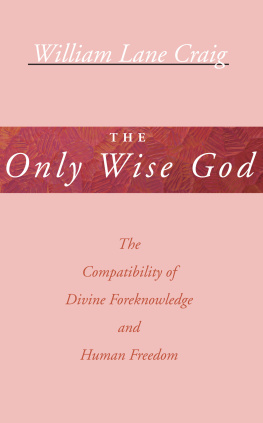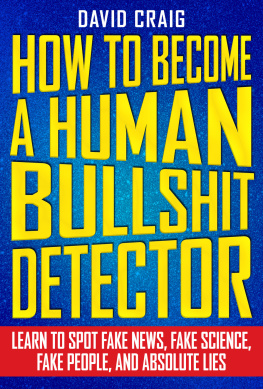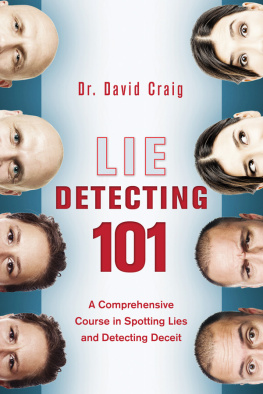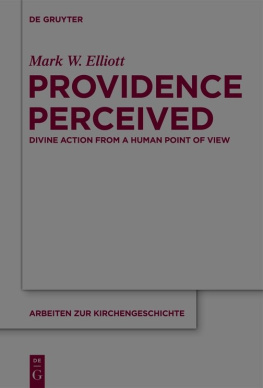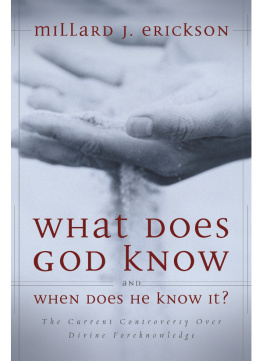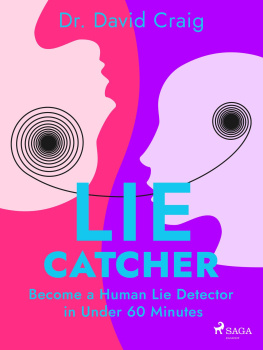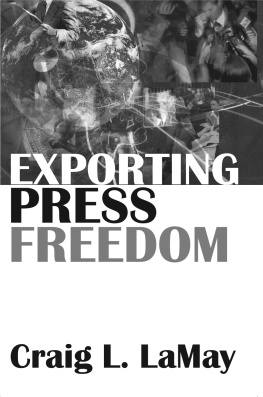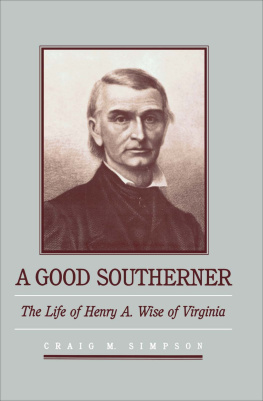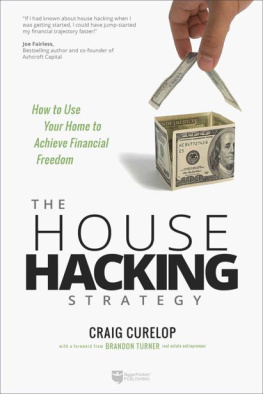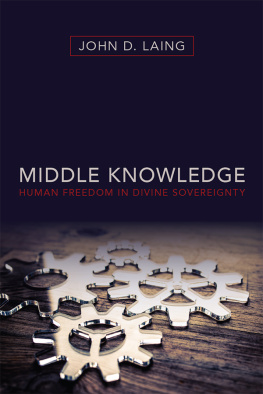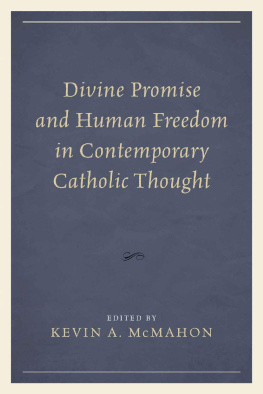Craig - The only wise God : the compatibility of divine foreknowledge and human freedom
Here you can read online Craig - The only wise God : the compatibility of divine foreknowledge and human freedom full text of the book (entire story) in english for free. Download pdf and epub, get meaning, cover and reviews about this ebook. City: Eugene, OR, year: 2000, publisher: Wipf and Stock Publishers, genre: Religion. Description of the work, (preface) as well as reviews are available. Best literature library LitArk.com created for fans of good reading and offers a wide selection of genres:
Romance novel
Science fiction
Adventure
Detective
Science
History
Home and family
Prose
Art
Politics
Computer
Non-fiction
Religion
Business
Children
Humor
Choose a favorite category and find really read worthwhile books. Enjoy immersion in the world of imagination, feel the emotions of the characters or learn something new for yourself, make an fascinating discovery.
- Book:The only wise God : the compatibility of divine foreknowledge and human freedom
- Author:
- Publisher:Wipf and Stock Publishers
- Genre:
- Year:2000
- City:Eugene, OR
- Rating:4 / 5
- Favourites:Add to favourites
- Your mark:
- 80
- 1
- 2
- 3
- 4
- 5
The only wise God : the compatibility of divine foreknowledge and human freedom: summary, description and annotation
We offer to read an annotation, description, summary or preface (depends on what the author of the book "The only wise God : the compatibility of divine foreknowledge and human freedom" wrote himself). If you haven't found the necessary information about the book — write in the comments, we will try to find it.
The only wise God : the compatibility of divine foreknowledge and human freedom — read online for free the complete book (whole text) full work
Below is the text of the book, divided by pages. System saving the place of the last page read, allows you to conveniently read the book "The only wise God : the compatibility of divine foreknowledge and human freedom" online for free, without having to search again every time where you left off. Put a bookmark, and you can go to the page where you finished reading at any time.
Font size:
Interval:
Bookmark:
William Lane Craig

The Only Wise God:
The Compatibility of Divine Foreknowledge & Human Freedom
By Craig, William Lane
Copyright 1999 by Craig, William Lane
ISBN: 1-57910-316-2
ISBN (ebook): 978-1-4982-7663-4
Reprinted by
Previously Published by Baker Book House, 1987
Unless otherwise noted, all Scripture references are taken from the Revised Standard Version of the Bible, copyright 1946, 1952, 1971, and 1973 by the Division of Christian Education of the National Council of the Churches of Christ in the United States of America.
For
Clark and Ann Peddicord
liebe Freunde und Geschwister im Herrn
Gods foreknowledge has as many witnesses as he has prophets.
Tertullian
T his is a book for thinking Christians who would like to understand better the divine attribute of omniscience or who may be troubled over how to reconcile Gods foreknowledge with human freedom.
I believe that the philosopher of religion can greatly benefit the body of Christ by helping its members to understand all of Gods various attributes, including omniscience. As I read the treatment of divine omniscience in the standard evangelical works of systematic theology, I am often amazed at their superficiality and lack of clear, logical reasoning. I believe that today the Christian seeking after truth will probably learn more about the attributes and nature of God from works of Christian philosophers than from those of Christian theologians. In my own life, I can testify that the philosophical study of divine omniscience, which I have pursued now for several years, has greatly deepened my appreciation of the biblical teaching concerning Gods foreknowledge, providence, and infinite wisdom.
Furthermore, modern atheism attacks Christian belief in God not so much because the proofs for Gods existence are inadequate, but because it finds the very concept of God unintelligible or incoherent. One attempt to demonstrate incoherence involves the allegation that foreknowledge of future free events is impossible, and thus an omniscient God cannot exist. To cite biblical passages asserting that God does have such foreknowledge does nothing to answer this objection, and Christians may find themselves beset by gnawing doubts even as they affirm the biblical truth. Indeed, there is a disturbing new trend among some evangelical theologians to deny the biblical doctrine of foreknowledge and to explain away scriptural passages asserting this doctrine, simply because the rational attack on it seems to them unanswerable. I hope to show in this book that such an unbiblical concession is altogether unwarranted and that the objection to the truth of divine foreknowledge and human freedom may be rationally resolved.
I have deliberately sought to avoid specialist terminology and to make the arguments as clear and simple as possible. Although the casual reader looking for entertainment or inspiration will probably lack the patience necessary to master the content of this book, I feel certain that any reader who is willing to take the time and make an effort to evaluate the reasoning presented here will find it simple enough to grasp. Readers wishing to go deeper may consult my two forthcoming books Divine Foreknowledge and Future Contingency from Aristotle to Surez (Leiden: E. J. Brill) and The Coherence of Christian Theism: Omniscience. The amount of other literature on these subjects is enormous; accordingly, at the end of each chapter I have suggested a few of the very best and most helpful treatments I have discovered.
Most of the research for this book was conducted during sabbaticals at the University of Arizona in Tucson and at the Bibliothque Nationale in Paris. I am especially indebted to William Asdell for many profitable discussions of the issues handled here. He saved me from many a mistake (any errors that remain, therefore, are just as much his fault as mine). My thanks, too, go to my wife Jan for her typing of the book.
William Lane Craig
Montigny-ls-Cormeilles, France
Q ue sera sera, goes the popular song, whatever will be will be. The futures not ours to see. Que sera sera. What will be will be! Taken literally, these lines express a logical truism. What will be will be is true by definition, just like what has been has been or what is, is. To say what will be will not be is to utter a self-contradiction. Of course, what will be will be! This is to say nothing more profound or threatening than what is brown is brown or what jumps, jumps.
But of course the words what will be will be give us an impression different from their literal meaning. What they seem to suggest is that what will be must be. Now that is an entirely different thing! What will be will be is just a tautology, but what will be must be is an expression of fatalism.
According to fatalism, if it is true that something will happen in the future, then it is not within our power to do anything to prevent it. An old Arabic story will serve as an illustration. A man was visiting Damascus and, upon rounding a comer, ran right into the person of Death. Both he and Death were startled to confront each other, and the man, fearing for his life, fled to Jerusalem. The next night Death came to his room and claimed him. The reason I was startled to see you in Damascus, explained Death, was that I knew I was to meet you here in Jerusalem tonight, and so I was surprised to find you there!
Fatalism does not mean that no matter what we do the future would turn out the same. If the man in our story had fled to Baghdad, then he would not have met Death in Jerusalem. But if fatalism is true, the man did not have it within his power to flee to Baghdad or, in fact, to do anything other than what he did do. Fatalism is thus a denial of human freedom. It entails that, if we shall act in a certain way, then we are not free to act in a different way. Whatever we shall do, we must do. Fatalism, if true, is threatening, since there is nothing we can do to avoid our fate.
Now fatalism should not be confused with determinism, the view that all our choices and actions are determined by prior causes. Given a series of causes up to some point, the effect at that point is completely predetermined. There is at that point no freedom to act in another way, for, given the prior series of causes, ones choice is causally necessary; that is to say, the causes determine ones choice. By contrast, fatalism does not necessarily hold that everything is causally determined. A fatalist could hold that a prior series of causes does not completely determine what we shall choose at a certain point and yet that it is still not within our power to choose anything other than what we shall choose. Fatalism does not appeal to causal factors to deny human freedom; rather it holds that from the very fact that we shall do some action, we must do that action. If it is now true, for example, that on April 1 of next year I shall eat pizza, then when April 1 arrives I must eat pizza, and I am not free to do anything else, even if my action is not at that point causally determined.
At this point the reader may be thinking that such a view is so weird and abstract that it is not worth ones time to refute it, much less to write a book about it. But in fact fatalism and fatalistic reasoning, although usually not recognized as such, can be shown to be very widespread. Historically, fatalism dominated the thinking of ancient Greece, and the early church fathers had to argue strenuously against it to support the concept of human freedom. More recently, the Oxford philosopher Michael A. E. Dummett reminisces that during the Second World War in the dark days of the Battle of Britain, when Nazi missiles and bombs pounded London nightly, many people lost their lives because they refused to take refuge in the bomb shelters. They reasoned, If I am going to be killed, then I am going to be killed, whether or not I take precautions. And if I am going to live, then I am going to live, whether or not I take precautions. Since I am either going to be killed or going to live, why bother taking precautions?
Font size:
Interval:
Bookmark:
Similar books «The only wise God : the compatibility of divine foreknowledge and human freedom»
Look at similar books to The only wise God : the compatibility of divine foreknowledge and human freedom. We have selected literature similar in name and meaning in the hope of providing readers with more options to find new, interesting, not yet read works.
Discussion, reviews of the book The only wise God : the compatibility of divine foreknowledge and human freedom and just readers' own opinions. Leave your comments, write what you think about the work, its meaning or the main characters. Specify what exactly you liked and what you didn't like, and why you think so.

